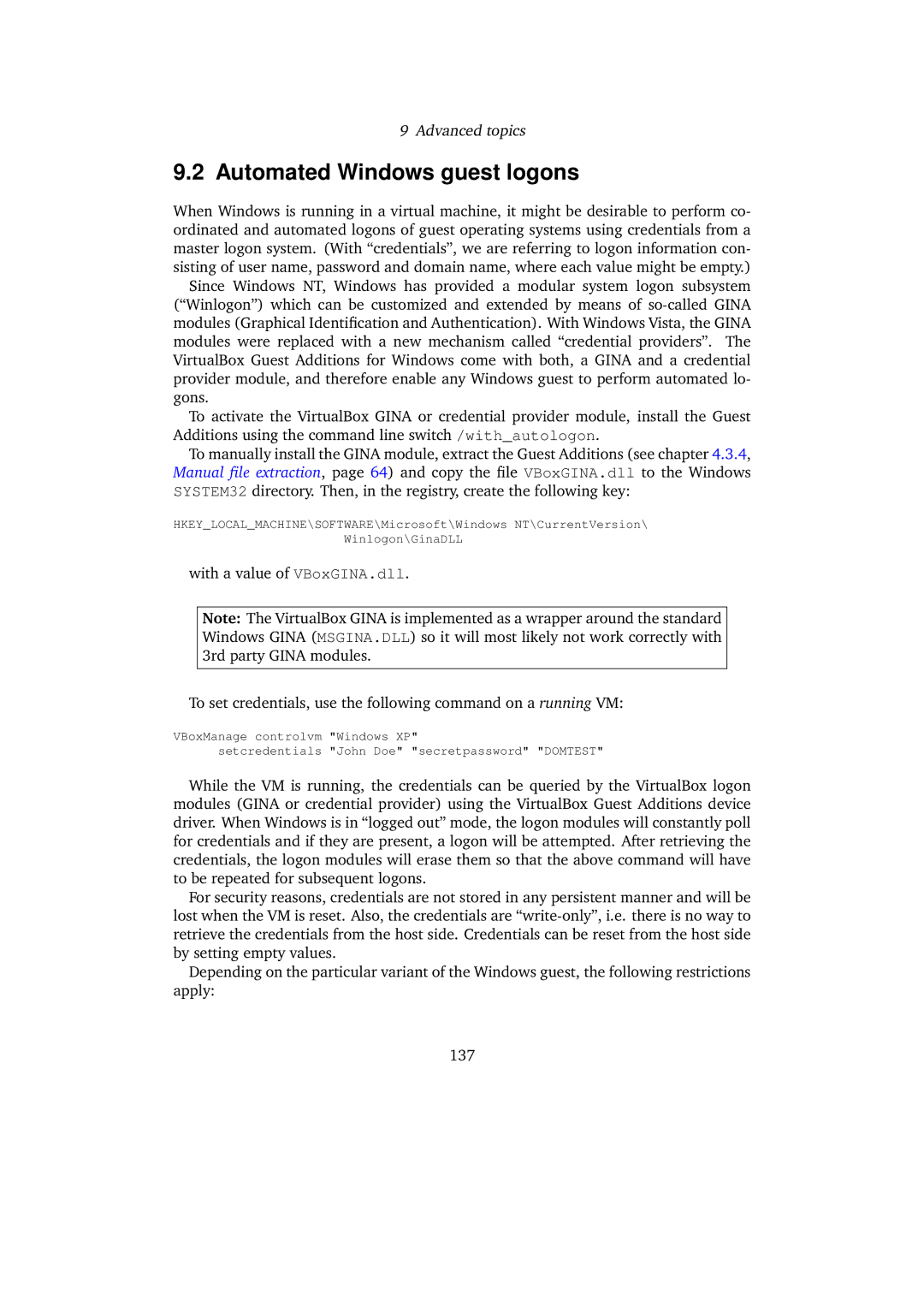
9Advanced topics
9.2Automated Windows guest logons
When Windows is running in a virtual machine, it might be desirable to perform co- ordinated and automated logons of guest operating systems using credentials from a master logon system. (With “credentials”, we are referring to logon information con- sisting of user name, password and domain name, where each value might be empty.)
Since Windows NT, Windows has provided a modular system logon subsystem (“Winlogon”) which can be customized and extended by means of
To activate the VirtualBox GINA or credential provider module, install the Guest Additions using the command line switch /with_autologon.
To manually install the GINA module, extract the Guest Additions (see chapter 4.3.4, Manual file extraction, page 64) and copy the file VBoxGINA.dll to the Windows SYSTEM32 directory. Then, in the registry, create the following key:
HKEY_LOCAL_MACHINE\SOFTWARE\Microsoft\Windows NT\CurrentVersion\
Winlogon\GinaDLL
with a value of VBoxGINA.dll.
Note: The VirtualBox GINA is implemented as a wrapper around the standard Windows GINA (MSGINA.DLL) so it will most likely not work correctly with 3rd party GINA modules.
To set credentials, use the following command on a running VM:
VBoxManage controlvm "Windows XP"
setcredentials "John Doe" "secretpassword" "DOMTEST"
While the VM is running, the credentials can be queried by the VirtualBox logon modules (GINA or credential provider) using the VirtualBox Guest Additions device driver. When Windows is in “logged out” mode, the logon modules will constantly poll for credentials and if they are present, a logon will be attempted. After retrieving the credentials, the logon modules will erase them so that the above command will have to be repeated for subsequent logons.
For security reasons, credentials are not stored in any persistent manner and will be lost when the VM is reset. Also, the credentials are
Depending on the particular variant of the Windows guest, the following restrictions apply:
137
